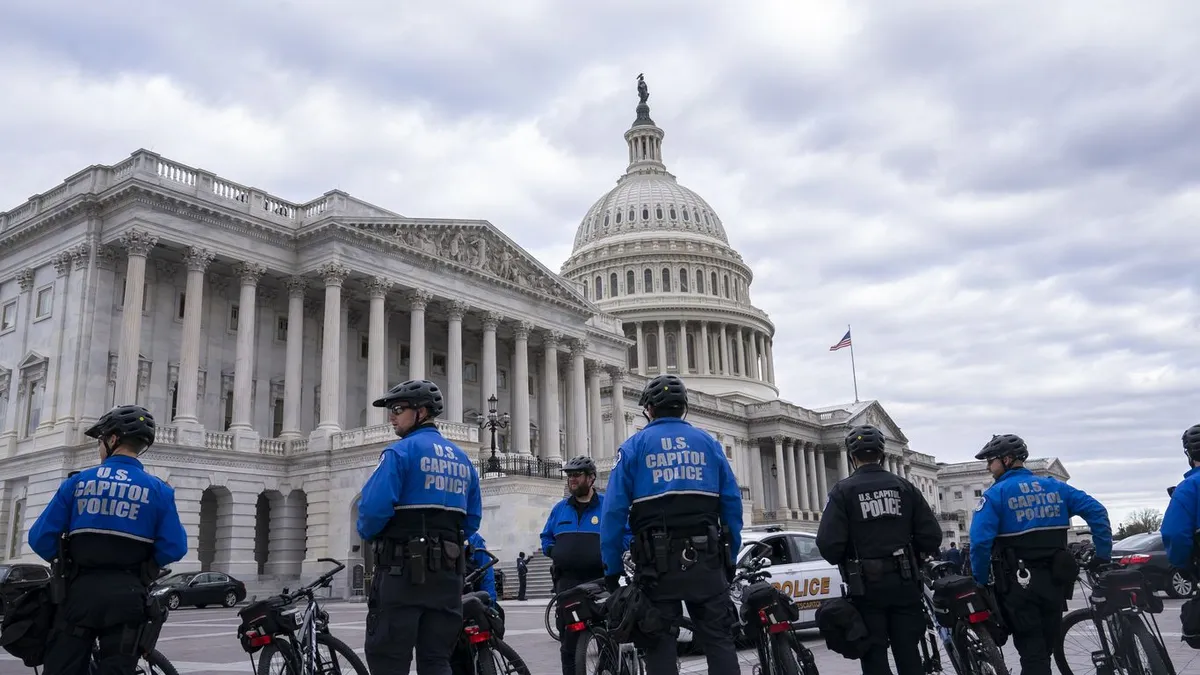
A long-standing debate surrounding congressional security has resurfaced dramatically following a tragic incident involving Minnesota state legislators. Over the weekend, a pair of shootings at the homes of state lawmakers resulted in the deaths of two individuals and left two others hospitalized. This disturbing event has intensified fears among members of Congress, who now feel increasingly vulnerable to unexpected attacks, especially in their home districts and while traveling.
The recent shootings have sent shockwaves through the political landscape, as members of Congress grapple with the reality that they could be potential targets. The issue of personal security is largely reserved for top congressional leaders and high-profile members who face specific threats. However, rank-and-file lawmakers are now vigorously advocating for enhanced security measures, which include personal security details, improved safety protocols at their residences and airports, and stricter measures to protect their sensitive information.
The tragic events unfolded early Saturday morning when Minnesota state House Democratic Leader Melissa Hortman and her husband were shot and killed at their home. The alleged shooter, 57-year-old Vance Boelter, also targeted Democratic state Senator John Hoffman and his wife, leaving them hospitalized. Reports indicate that Boelter was dressed as a police officer and was driving a vehicle resembling those used by local law enforcement. Investigators have also discovered a manifesto that reportedly listed other Democratic lawmakers and prominent abortion rights advocates as potential targets.
This shocking incident has prompted swift responses from congressional leaders. Senate Minority Leader Chuck Schumer (D-N.Y.) has called for increased security for Minnesota Senators Amy Klobuchar and Tina Smith. Similarly, House Minority Leader Hakeem Jeffries (D-N.Y.) expressed the need for enhanced security measures for the Minnesota delegation and other members of Congress nationwide. The Capitol Police acknowledged the violence against state lawmakers in Minnesota and stated they were collaborating with federal, state, and local partners, although they did not provide further details.
Rep. Bennie Thompson (D-Miss.), the ranking member of the House Homeland Security Committee, emphasized the urgent need for the Capitol Police to develop concrete solutions for improved member security. He highlighted the reality that many members currently have no more security than Hortman did, indicating that the Capitol Police are not equipped to ensure the safety of all 435 members effectively. Rep. Jared Moskowitz (D-Fla.) echoed these sentiments, noting that as Congress becomes less functional, maintaining safety is becoming increasingly challenging.
On Saturday afternoon, House Republicans held a conference call in which lawmakers urged their leadership to allocate more security resources to individual members. Proposals discussed included heightened security measures at members' homes, increased safety protocols at airports, and enhanced security for meetings. However, one Republican lawmaker indicated that the leadership appeared unresponsive to these urgent pleas, suggesting that little has changed in terms of security resources. A spokesperson for House Speaker Mike Johnson (R-La.) did not respond to requests for comments regarding the matter.
In response to the rising concerns, Jeffries is scheduled to host a virtual briefing on members' security next Tuesday. A senior House Democrat revealed that many colleagues are anxious and desire to keep their addresses confidential while requesting regular security updates. There is a significant demand within the party for rank-and-file members to receive their own security details. Rep. Moskowitz has indicated he may push for a House vote to hold a secret session, allowing members to discuss sensitive security matters privately. Such sessions are typically reserved for confidential discussions, as seen during the last secret session in 2008. He stated that he might not need to pursue this course of action if the leadership addresses the security concerns promptly.
The recent shootings in Minnesota have reignited a crucial conversation about congressional security. As lawmakers advocate for enhanced safety measures, the urgency of the situation underscores the importance of addressing the vulnerabilities faced by elected officials. With fears growing among members of Congress, it remains to be seen how leadership will respond to these pressing security needs in the coming days.